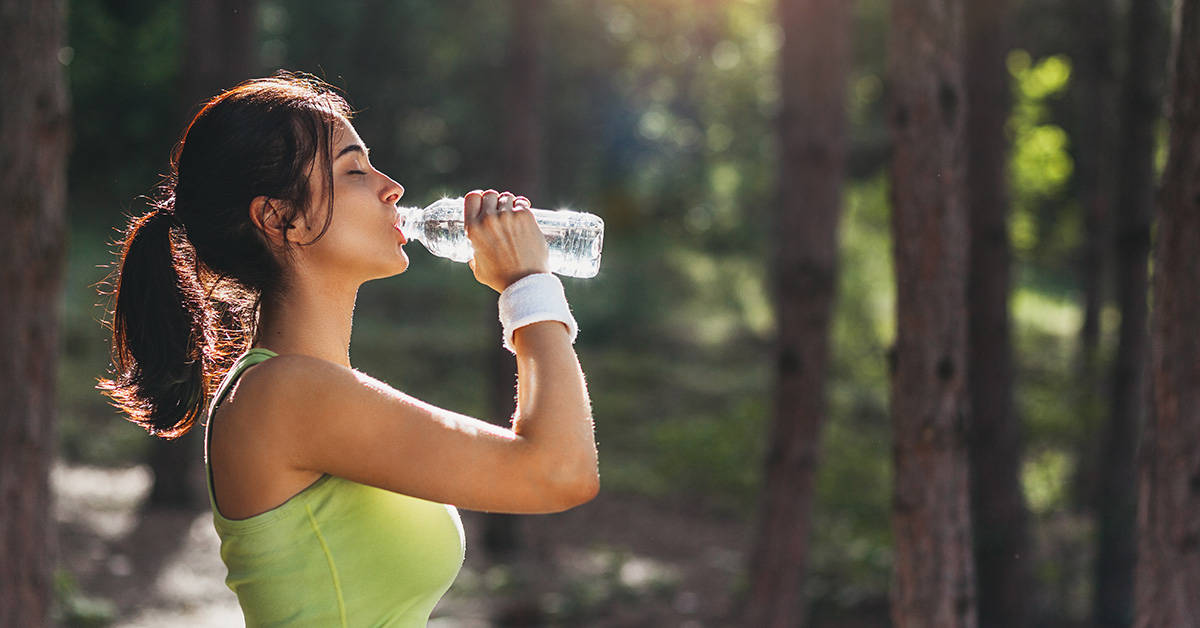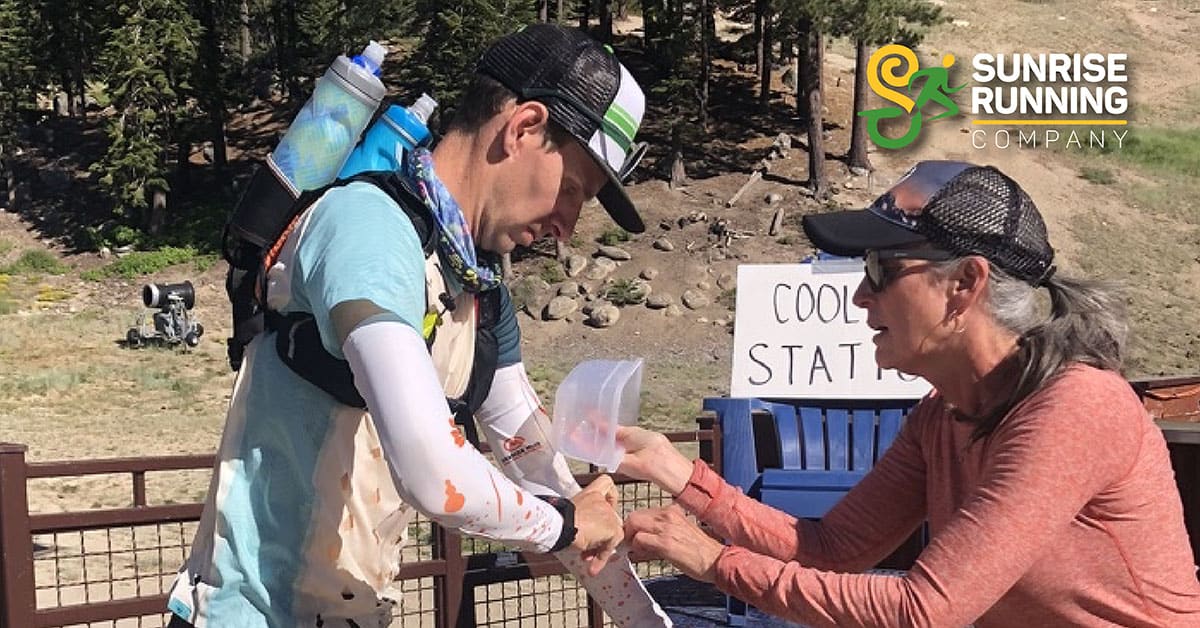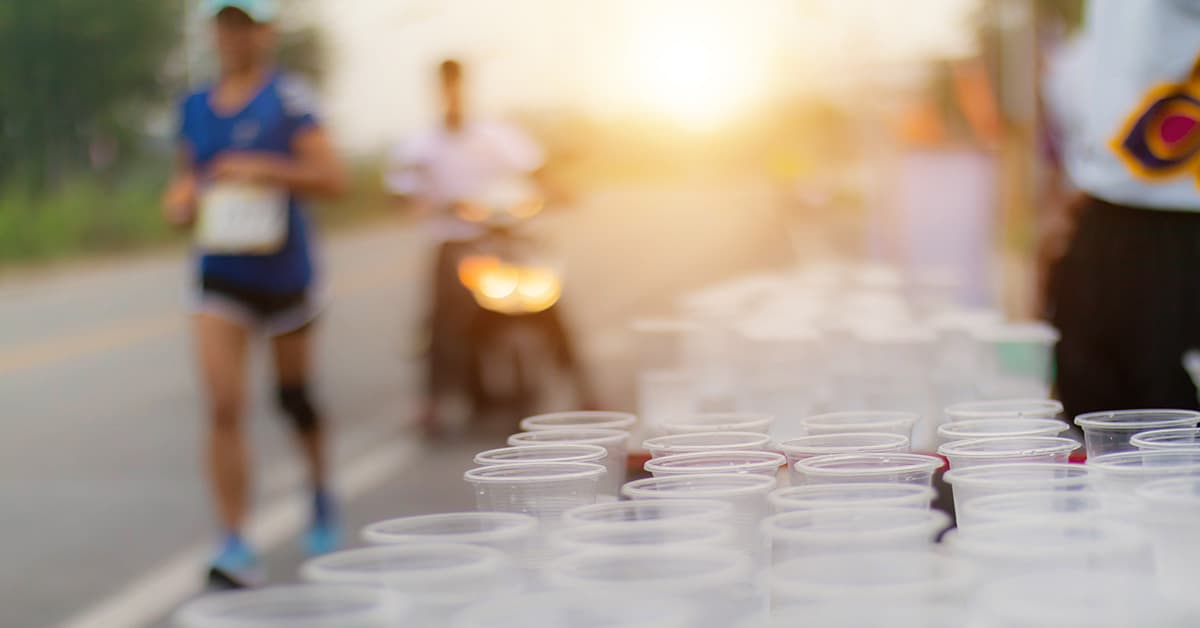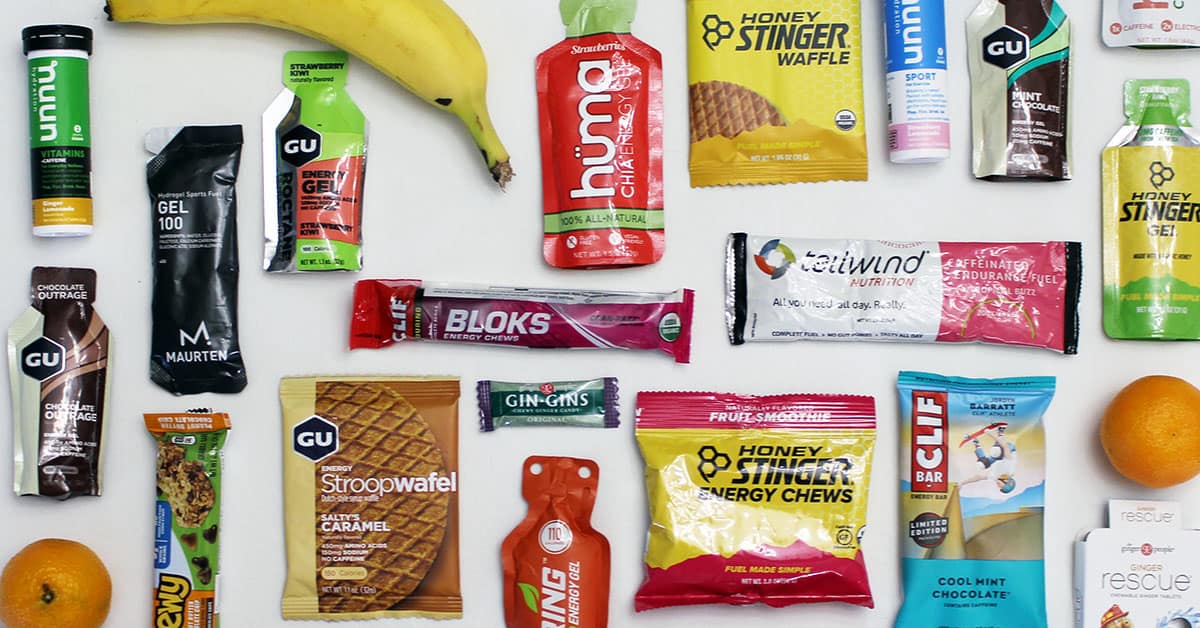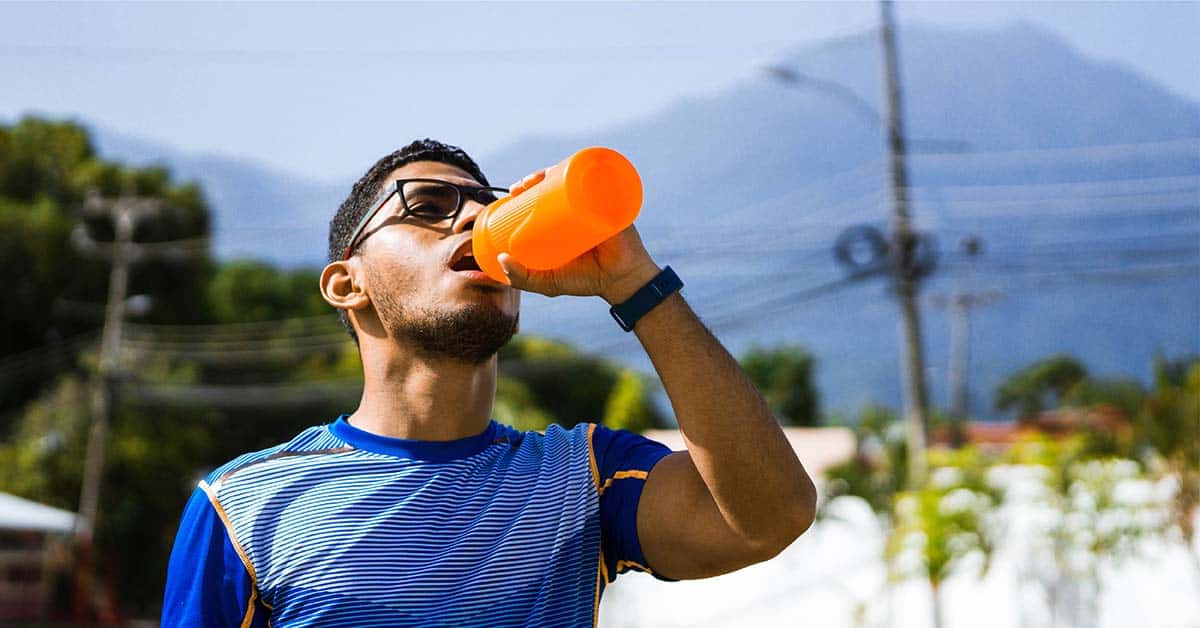As we’re easing into the summer months, it’s a good time to focus on hydrating while running. With the heat and humidity comes sweat, and when you sweat, you lose electrolytes. Electrolytes are the minerals in your body that keep everything in your body moving properly. Whether training or competing, you’re bound to lose a lot of electrolytes while running in hot, humid climates. Here are some hydration tips to help you keep running at your peak even when the weather is hot.
Why all the fuss about hydration?
Staying properly hydrated during a run allows you to keep running at your peak performance longer. When dehydration sets in, you risk fatigue, muscle cramps, nausea, headaches, and more. If you let it go for too long, dehydration can actually become dangerous. Basically, dehydration makes you feel bad and slows you down.
In day-to-day life, dehydration isn’t much of an issue. When training or competing, however, you need to purposefully combat dehydration. Hydrating while running increases your endurance and keeps you from slowing down too early.
Best Hydration Tips for Runners:
1. Pre-hydrate.
If you’re living an active lifestyle, you should try to stay well hydrated every day. You might need some extra planning for hydrating while running, but practicing good hydration techniques in everyday life will help maintain your energy all the time. The exact amount of water that you should drink every day varies based on body type, exercise level, and climate. Simply, you should drink water or other low-calorie fluids every time you feel thirsty, and you should drink more when you are working out or you’re in a hot climate.
When you know you’ve got a big run or workout coming up, start hydrating more than you normally would. For really big runs, start hydrating in the days leading up to the event. For everyday runs or smaller races, your prep should start a few hours in advance.
Within two hours of the run, drink up to 20 oz of water or sports drinks. This will ensure that you’re starting the run hydrated and will give you a little sugar boost if you’re drinking sports drinks. During your run, drink up to 10oz of water or sports drinks every 15-20 minutes. If drinking 10 oz makes you feel like the liquid is sloshing around in your stomach, try 5 oz instead. It’s better to take sips frequently to make up the volume than to feel sluggish from sloshing.
Hydrating while running is really important, but continue to drink up to 24 oz of water and sports drinks after the run too. If you sweat a lot during your run, the electrolytes from beverages like sports drinks and coconut water can help replenish the sodium that you lose through sweating.
2. Make a hydration schedule.
Many runners get caught up in the moment and forget to hydrate. They don’t want to lose time during the run, so they forego drinking. Then their time suffers due to dehydration. Make a hydration plan ahead of time and stick to it. Then you won’t overthink it in the moment, and you’ll continue hydrating while running.
If you’re competing in an official in-town race, there will likely be water and aid stations throughout the route. Make sure you know where those will be so you can plan for them. If you’re out for a run on your own or you’re doing a larger off-road race, you will likely need to carry your drinks with you. Some runners prefer to wear a hip belt or a hydration pack while running, others prefer to carry a water bottle. Try out a few methods and see what works for you.
3. Plan Your Drinks.
Water is always a good go-to for hydrating while running, but you’ll need something to replace your electrolytes as well. The main two minerals to focus on replacing are sodium and potassium. Most sports drinks have everything you need to balance your electrolytes, but they sometimes contain too much sugar. Many runners find that they get nauseous during a run if they eat or drink something with too much sugar.
When looking for products to replace your electrolytes, purchase a low-carb sports drink containing sodium and potassium in a flavor that you like. If you’re looking for a good sports drink to replace electrolytes, check out Tailwind Nutrition. Their products combine calories and electrolytes to boost hydration in a way that doesn’t upset your stomach. Some of their products contain caffeine as well, which goes a step beyond the average sports drink. Most runners don’t like drinking too much coffee on the morning of a big run, but a little caffeine combined with sugar and sodium can increase your energy throughout your run.
Looking for more information on hydration. Trying to determine your fluid needs. Go further with the Hydrate for Summer Running article.
Bonus advice:
Don’t overhydrate. It is possible to drink too much water, and drinking too much water can be dangerous. Your water intake should balance with your food and sodium intake. If you’re starting to feel like you’re dehydrated but you know you’ve been drinking plenty of fluids, take a break and reassess. You might actually be overly hydrated.
If you’re just going for a short run and it’s not especially hot or humid outside, you may not need to drink much during the run. If you hydrated well beforehand and you hydrate well when you return, you might not need much liquid during your run. If it is especially hot and humid, or if you tend to sweat excessively, you should still plan on hydrating while running even if it’s just a short run.
A Training Plan that Works for You.
Our collection of running plans will help you train year-round. From 5k to a 100-mile ultramarathon, we have a training plan built for your experience level and goals. Every plan is delivered via Final Surge, allowing you to sync workouts across devices, receive daily reminders of workouts and activities, and analyze workout and target zone details. Get started today with a training plan built for you, view our running plans here.

